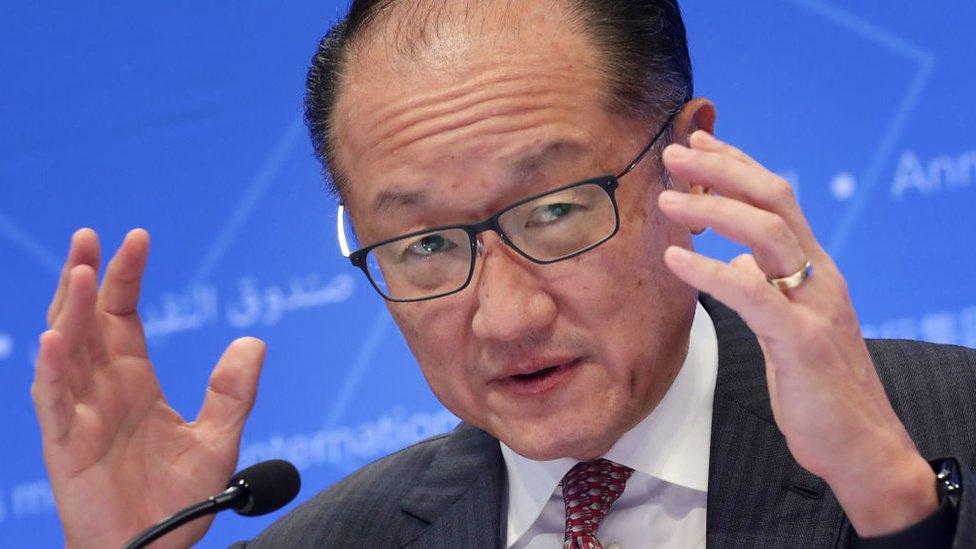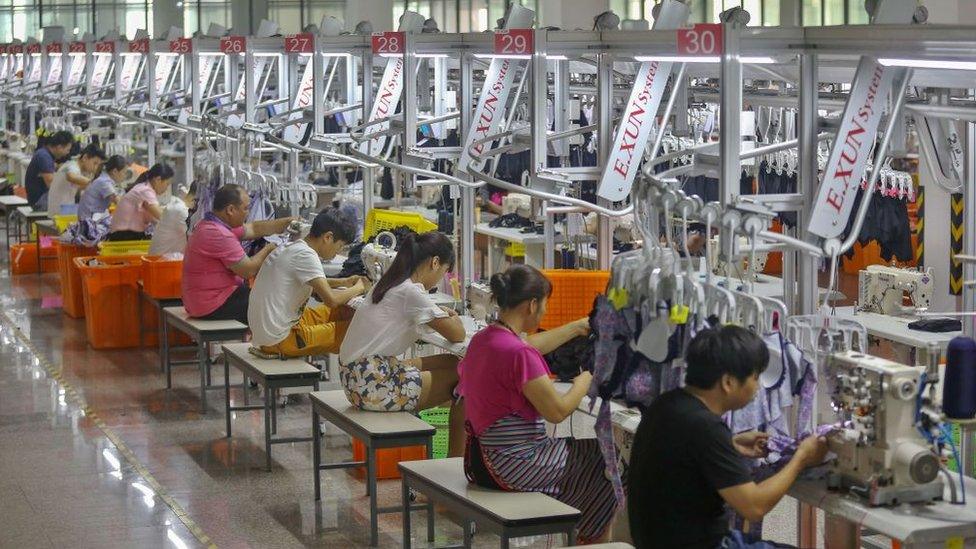Global growth back at pre-crisis levels, says World Bank
- Published

The World Bank says global economic growth is likely to speed up this year, after a stronger than expected 2017.
The bank's new forecast is that the world economy will expand by 3.1% this year before slowing slightly.
It will be the first time since the financial crisis that growth is operating at its full potential.
However, the report warns the upswing will be short term, with gains in improving living standards and reducing poverty levels at risk long term.
For the immediate future, the bank sees a reasonably upbeat prospect.
The bank's president Jim Yong Kim said: "The broad-based recovery in global growth is encouraging".
The forecast is better than what the bank was expecting in its previous assessment last June.
Among the large economies, the up-rating is especially marked for the eurozone, though the bank still thinks it will slow somewhat this year, but by less than its previous forecast.
Long-term growth
Emerging and developing economies will grow slightly faster than last year in this forecast.
However, the bank is worried about the longer term.
The issue is whether the world economy will have the capacity to maintain decent growth beyond the current upturn.
Its potential is growing more slowly than it used to, the bank says.
That's the result of years of lacklustre improvements in productivity - the amount each worker can produce - weak investment and an ageing workforce.
This slowdown in longer term prospects is widespread, the bank says. It affects countries that account for about two thirds of global economic activity.
The fact that in the bank's view the economy is close to operating at full capacity means that there's little scope to stimulate further growth with the standard policy tools that work by boosting demand for goods and services - interest rate or tax cuts or increased government spending.

China's economy is expected to continue slowing
It says government should promote reforms to improve education and health services and infrastructure - such as roads ports, electricity supplies and telecommunications networks.
A healthier and better educated workforce is likely to be more productive, and better infrastructure makes it easier for business to be more productive too.
The weaker growth of the capacity of the economy is an increasingly persistent theme in the analysis of official economic agencies such as the World Bank and the International Monetary Fund
There are some marked variations in the forecasts between different regions. Africa and India are seen as likely to pick up a bit of speed this year.
China's slowdown, which began at the start of the decade, is predicted to continue, though with expected growth of 6.4% it's still strong.
- Published30 December 2017

- Published10 January 2017
